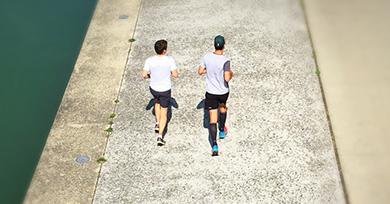
Breadcrumb
- Home
- Search a publication
- Participation in sport and use of psychoactive pro...
Sport is often associated with positive values in terms of health, well-being and social integration. Advertisements aimed at prevention of drug use sometimes present sport as an alternative.

However, epidemiological and ethnological studies carried out during the last few years call into question the supposed protective effect of practising sport in regard to use of psychoactive substances. They suggest that we should reconsider the relationship between this practice and use. In France, this idea notably took shape at the seminar Sports practices of young people and risk behaviour organised at the end of 20001.
Using a survey of adolescents, this seminar, among other things, made it possible to highlight the existence of a "U curve" between participation in sport outside school and the use of psychoactive products, particularly alcohol: young people who do not do sports and those who do a lot of sport often consume even more than those who participate in moderation.
The system of surveys among the general population set up by OFDT made it possible to explore this link in relation to the most generally-used products (alcohol, tobacco, cannabis) from three complementary sources: a survey in schools from the 4th to final year (ESPAD 1999, in partnership with Inserm and the Ministry of Education, a survey centred on 17-year olds, both at school and not attending school (ESCAPAD 2000), and finally a survey of 12- 75-year olds (Baromètre Santé 2000 (Health Barometer 2000) carried out by the CFES, whose principal partners are CNAMTS, the Ministry of Employment and Job Creation and OFDT).